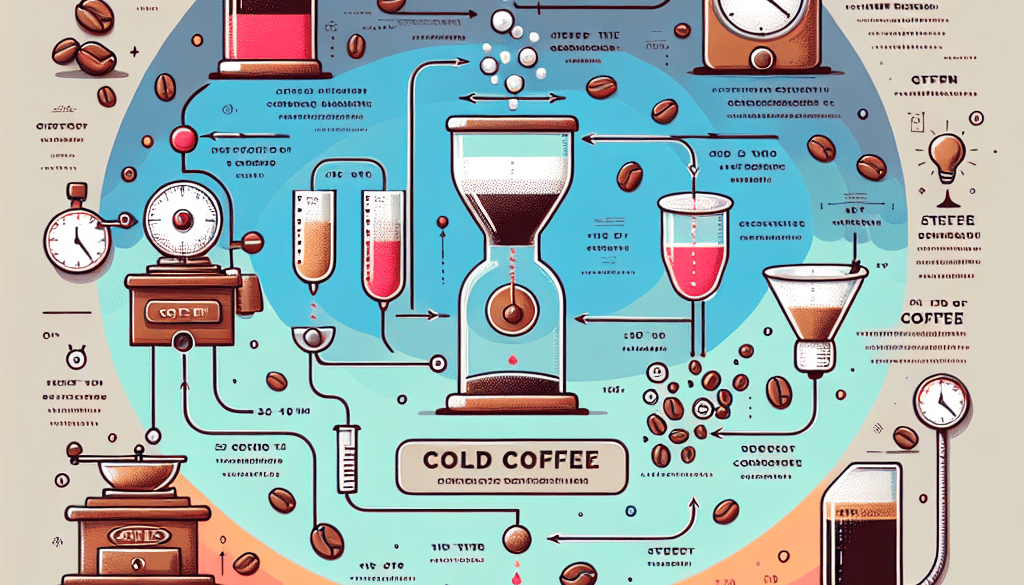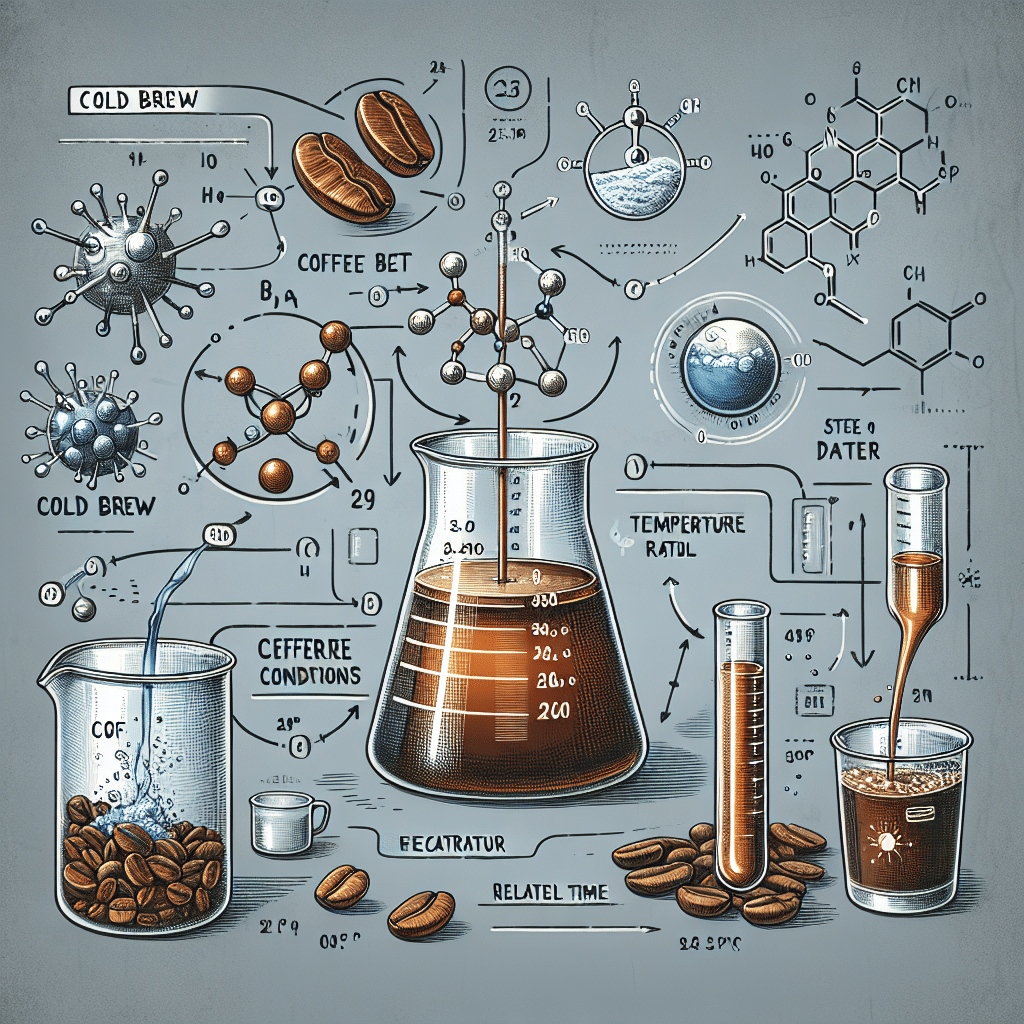What Science Tells Us About Making the Best Tasting Cold Brew Coffee
-
Table of Contents
- Unlocking the Secrets to the Perfect Cold Brew Coffee: A Scientific Approach
- The Science of Cold Brew Coffee
- Extraction: The Key to Flavor
- Acidity and Compound Breakdown
- Caffeine Content
- Optimizing Your Cold Brew: Variables to Consider
- Choosing the Right Coffee Beans
- The Grind Size Matters
- Water Quality and Temperature
- Steeping Time: Patience is Key
- Filtration: The Final Step
- Case Studies and Experiments
- Conclusion: Crafting the Ultimate Cold Brew
- Enhance Your Health with ETChem’s Protein Products
Unlocking the Secrets to the Perfect Cold Brew Coffee: A Scientific Approach
Cold brew coffee has become a staple for coffee aficionados and casual drinkers alike, prized for its smooth flavor and reduced acidity. But what does science say about crafting the perfect cup of cold brew? This article delves into the scientific principles behind cold brew coffee and offers insights into how you can make the best tasting cold brew at home or in your café.
The Science of Cold Brew Coffee
Cold brew coffee is not just iced coffee; it’s a unique brewing method where coffee grounds are steeped in cold water for an extended period, typically 12 to 24 hours. This slow extraction process results in a different chemical profile compared to hot brewed coffee, affecting taste, acidity, and caffeine content.
Extraction: The Key to Flavor
The extraction process is central to the flavor of cold brew coffee. Unlike hot water, cold water extracts flavors from coffee grounds more slowly and selectively. This means that the bitter compounds often found in hot coffee are less prevalent in cold brew, leading to a smoother taste.
Acidity and Compound Breakdown
Scientific studies have shown that cold brew coffee has a lower concentration of acidic compounds. The reason lies in the temperature of the water used; high temperatures can lead to a faster breakdown of certain compounds that contribute to acidity. By using cold water, these compounds are extracted at a slower rate, resulting in a milder cup of coffee that is easier on the stomach.
Caffeine Content
There’s a common misconception that cold brew coffee contains more caffeine than hot coffee. However, the caffeine content in cold brew can vary widely depending on the coffee-to-water ratio and steeping time. Generally, cold brew can be more concentrated, and thus, when served undiluted, it may contain more caffeine per ounce than regular coffee.
Optimizing Your Cold Brew: Variables to Consider
To make the best tasting cold brew coffee, several variables need to be optimized. Here’s what science tells us about each:
Choosing the Right Coffee Beans
The type of coffee bean you choose will significantly impact the flavor of your cold brew. Beans with a naturally sweet and fruity profile, often from African regions, can enhance the cold brew experience. However, the choice of beans is subjective, and experimenting with different origins and roasts can help you find your perfect match.
The Grind Size Matters
The grind size of your coffee beans is crucial in cold brewing. A coarse grind is generally recommended because it allows for a slow and even extraction without over-extracting bitter compounds. A finer grind can lead to a cloudy brew and an over-extracted taste.
Water Quality and Temperature
The quality of water used in brewing can’t be overlooked. Water with a neutral pH and low mineral content is ideal for a clean-tasting cold brew. The temperature of the water should be kept consistently cold throughout the brewing process to maintain the slow extraction rate.
Steeping Time: Patience is Key
The steeping time can vary depending on personal taste preferences. While a 12-hour steep might yield a lighter, more delicate flavor, extending the time to 24 hours can enhance the body and richness of the brew. It’s essential to find a balance to avoid over-extraction, which can lead to bitterness.
Filtration: The Final Step
Once your cold brew has steeped, proper filtration is necessary to remove the coffee grounds and any fine particles. Using a fine-mesh sieve or a specialized cold brew coffee filter can ensure a clean, sediment-free cup.
Case Studies and Experiments
Several studies and experiments have been conducted to determine the best practices for making cold brew coffee. For instance, a study by the Specialty Coffee Association found that a coffee-to-water ratio of 1:8 provides an optimal balance for most palates. Additionally, experiments by coffee enthusiasts have shown that stirring the mixture a few times during the steeping process can improve extraction and flavor.
Conclusion: Crafting the Ultimate Cold Brew
Making the best tasting cold brew coffee is both an art and a science. By understanding the scientific principles behind extraction, acidity, and caffeine content, you can experiment with different variables to find your ideal brew. Remember to choose the right beans, grind size, water quality, steeping time, and filtration method to achieve a smooth, flavorful cold brew that delights the senses.
Enhance Your Health with ETChem’s Protein Products
After mastering the art of cold brew coffee, consider complementing your beverage with high-quality protein products from ETChem. Their range of collagen products, including marine, fish, bovine, and chicken collagen, can be a perfect addition to your diet, supporting overall health and wellness.
About ETChem:
ETChem, a reputable Chinese Collagen factory manufacturer and supplier, is renowned for producing, stocking, exporting, and delivering the highest quality collagens. They include marine collagen, fish collagen, bovine collagen, chicken collagen, type I collagen, type II collagen and type III collagen etc. Their offerings, characterized by a neutral taste, instant solubility attributes, cater to a diverse range of industries. They serve nutraceutical, pharmaceutical, cosmeceutical, veterinary, as well as food and beverage finished product distributors, traders, and manufacturers across Europe, USA, Canada, Australia, Thailand, Japan, Korea, Brazil, and Chile, among others.
ETChem specialization includes exporting and delivering tailor-made collagen powder and finished collagen nutritional supplements. Their extensive product range covers sectors like Food and Beverage, Sports Nutrition, Weight Management, Dietary Supplements, Health and Wellness Products, ensuring comprehensive solutions to meet all your protein needs.
As a trusted company by leading global food and beverage brands and Fortune 500 companies, ETChem reinforces China’s reputation in the global arena. For more information or to sample their products, please contact them and email karen(at)et-chem.com today.





